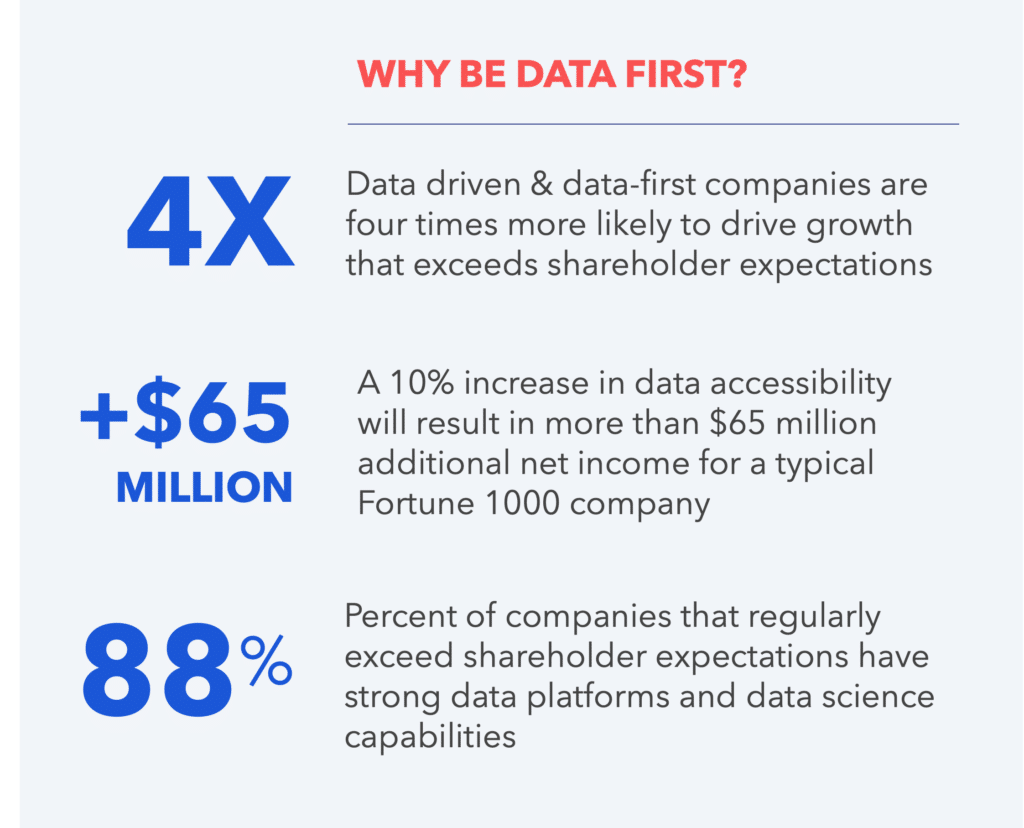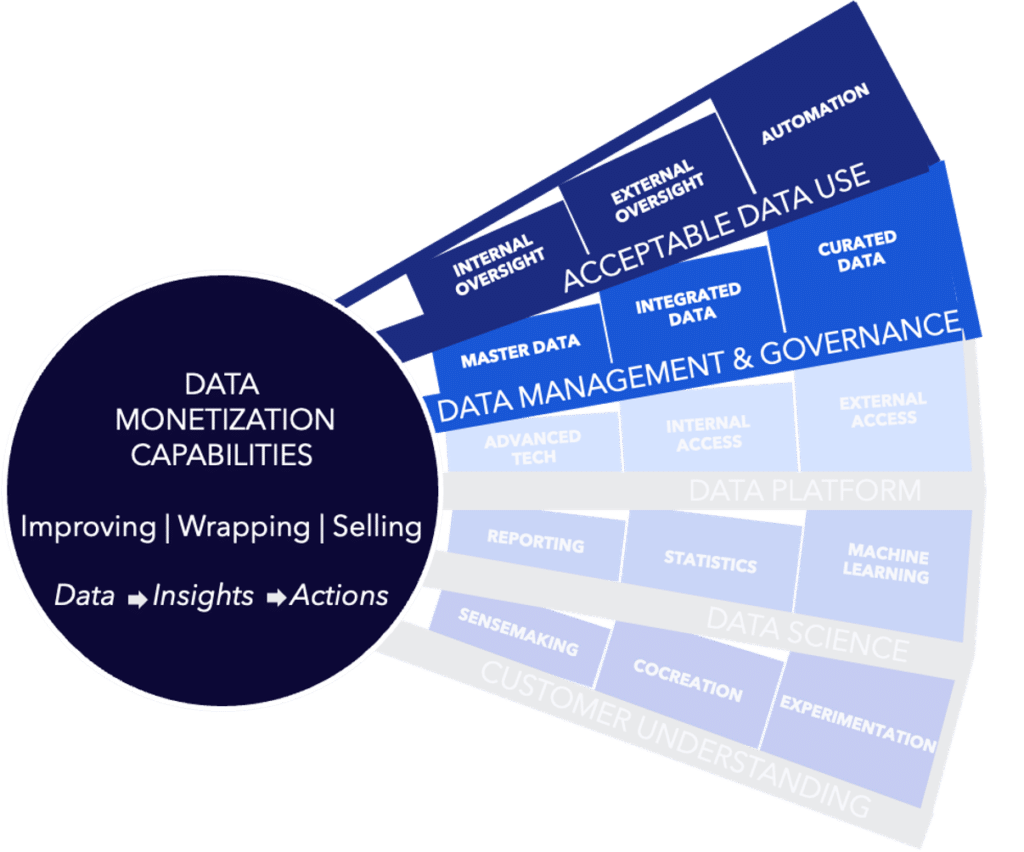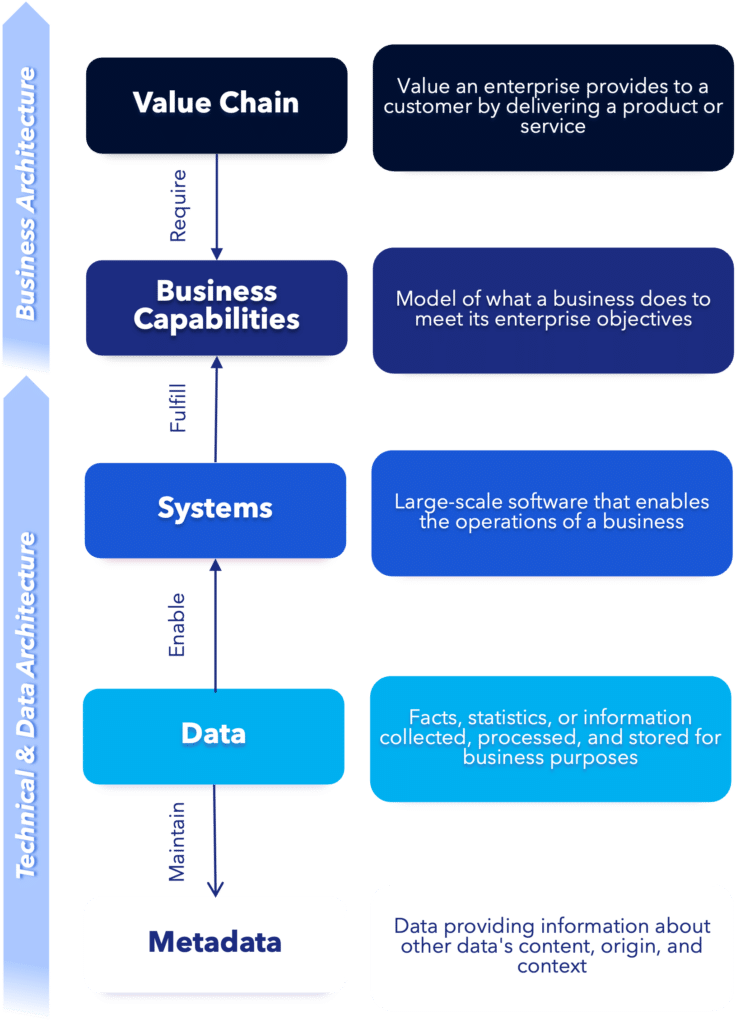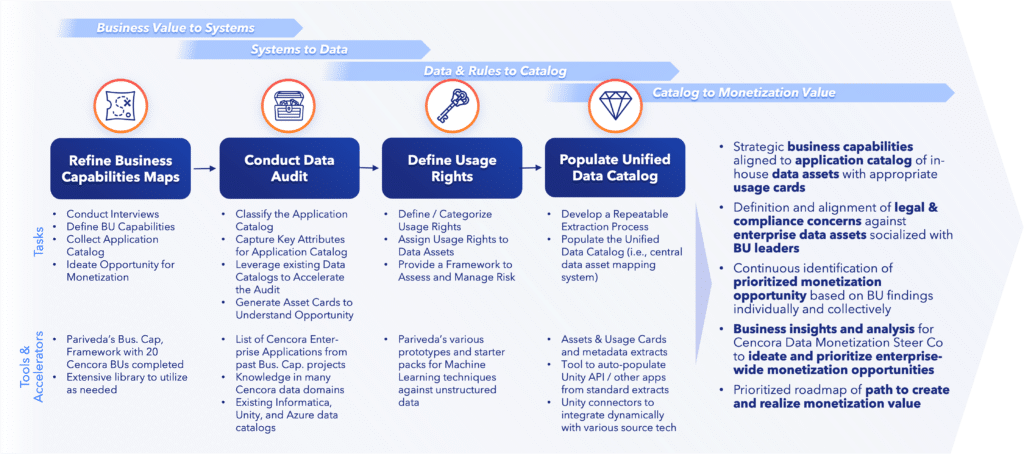Unlocking ROI from data
Many organizations have yet to fully realize the potential return on investment (ROI) from their data assets. Achieving this requires more than just technology—it demands a holistic approach encompassing people, processes, and platforms, along with a culture of experimentation and continuous learning.
- Identify value: Your team must possess the strategic tools needed to conduct analyses that drive data product development.
- Deliver value: The right tools and platforms, combined with authority and proper governance, enable teams to execute initiatives swiftly, safely, and with high quality.
- Sustain value: Empowering management and operational layers fosters synergy across the organization, ensuring long-term value realization.

Data monetization is more than selling data sets
Data monetization strategies extend beyond the simple sale of data. Enterprises can transform data into revenue through various methods:
- Improving data: Establish frameworks for data ownership, regulatory training, and access approval processes to ensure responsible use of data assets by employees and partners.
- Wrapping products with data: Embed data within products to enhance value, ensuring both internal oversight (e.g., employee training and audits) and external oversight (e.g., clear partner agreements and audits).
- Selling information offerings: Develop automated systems enabling customers to manage their data independently, increasing trust and transparency.

By focusing on data management and governance, organizations can convert raw data into accurate, integrated, and curated data sets, leading to more reliable and actionable insights. Key steps include automating data quality processes, identifying core business data sources, and standardizing critical data elements.
Modern environments demand a flexible architecture
To monetize data effectively, businesses must align their business architecture, enterprise architecture, and data architecture. This approach allows organizations to better understand how data supports business strategy, ultimately enabling the commercialization of data assets.

Traditional data consumption models often result in teams duplicating efforts, which leads to unnecessarily complex and inefficient architectures. In contrast, adopting a data asset model offers a more streamlined approach, where solutions are built around reusable data products. This method reduces redundancy, simplifies the architecture, and ultimately accelerates the time it takes to deliver value.
To succeed, data leaders must revise their strategies to address the full data ecosystem, from on-premise to multi-cloud environments. They should also align data architecture with the distributed nature of modern business use cases while meeting data compliance and sovereignty requirements.
Data governance balances risk and business value
High-performing companies strike a delicate balance between risk and reward, tying data governance directly to business outcomes such as revenue growth, cost optimization, and improved customer experiences.
According to Gartner, effective data governance should be aligned with business outcomes, directly supporting the organization’s overall strategy. However, many organizations mistakenly orient governance around the data itself rather than the business context, creating disconnects between business and data leadership.
Pariveda’s approach begins with mapping business capabilities and building a governance model that aligns with enterprise objectives, ensuring organization-wide buy-in. This alignment fosters more meaningful discussions between data and business leaders.
Moving forward: A 4-step approach
Pariveda offers a comprehensive approach to help organizations unlock data monetization potential through the following steps:
- Refined business capabilities map: This map identifies where data resides and pinpoints business monetization opportunities.
- Thorough data audit: Using advanced auditing tools (such as Collibra or Apache Atlas) we conduct comprehensive data audits to classify data and create asset cards to visualize monetization potential
- Defined usage rights: We refine data usage definitions and develop a framework for managing risks associated with data across different business units.
- Populated unified data catalog: Leveraging data cataloging tools such as Databricks Unity Catalog, we create a unified data catalog to centralize and manage data assets.

By taking a structured, architecture-driven approach, organizations can unlock the true value of their data, driving sustained growth and competitive advantage.
Ultimately, unlocking monetization hinges on deeply understanding your business architecture, technology applications, and data catalogs. Organizations can transform data into valuable, revenue-generating assets by leveraging these insights.
















